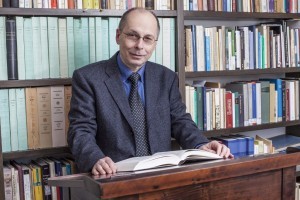 Prof. Dr. Theodor Dieter
Prof. Dr. Theodor Dieter
Director of Institute for Ecumenical Research, Strasbourg.
Prof. Dieter studied Protestant theology and philosophy in Heidelberg and Tübingen. His doctoral work in Protestant theology was completed 1991 with a dissertation on “The Philosophical Theses of Luther’s Heidelberg Disputation and Their Proofs. A Critical Commentary.” Since 1997 Prof. Dieter has been director of the Institute for Ecumenical Research in Strasbourg. The focus of Prof. Dieter’s research is the theology of Martin Luther, especially its medieval background and present-day relevance. In the area of ecumenism he works in Lutheran-Roman Catholic and Lutheran-Mennonite dialogue. In addition to working in assorted dialogues with the Lutheran World Federation and foundational research in the methodology and hermeneutics of dialogue, he offers frequent lectures and presentations in such diverse places as Tübingen; Hong Kong; Decorah, Iowa, USA; and Aarhus, Denmark.
Prof. Dieter has published extensively on these issues. Among his important publications are “Luthers Schriftprinzip in seiner Bedeutung für die Ökumene” (2010), “Martin Luther’s Understanding of ‘Reason’” (2011), and “Wer ohne Gefahr philosophieren will, muss zuvor in Christus zum Toren werden.” Zu Luthers Umgang mit der Philosophie” 2011), and not least “Von der Trennung zur Gemeinschaft. Zum katholisch-lutherischen Dialog” (2012).
http://www.strasbourginstitute.org/en/prof-dr-theodor-dieter/
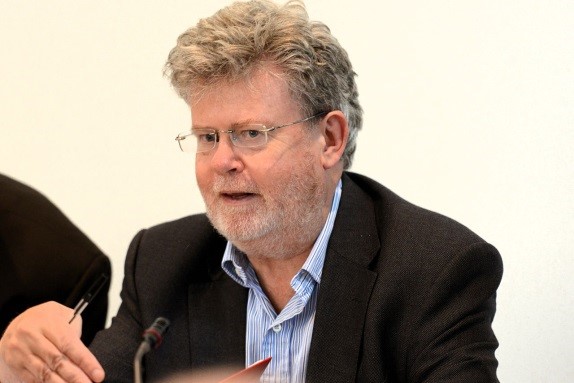 Prof. Emeritus John Milbank
Prof. Emeritus John Milbank
Director of the Centre of Theology and Philosophy, University of Nottingham
Prof. Milbank was educated in Britain, studying at both Oxford University and Cambridge University. He received his PhD degree from the University of Birmingham with a dissertation on Giambattista Vico. Cambridge University awarded him a senior Doctor of Divinity degree in recognition of published work in 1998. Prof. Milbank is the director of the Centre of Theology and Philosophy and chairman of the trustees of the think tank ResPublica.
Prof. Milbank is author of Theology and Social Theory: Beyond Secular Reason (1990), The Word Made Strange: Theology, Language, Culture (1997), and The Monstrosity of Christ: Paradox or Dialectic? (with Slavoj Žižek) (2009). Recently, Prof Milbank has released Beyond Secular Order: The Representation of Philosophy and the Representation of the People (2013), the first part of a two-part sequel to Theology and Social Theory.
http://theologyphilosophycentre.co.uk/staff/
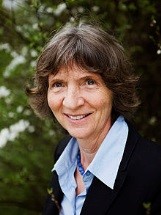 Prof. Dr. Aleida Assmann
Prof. Dr. Aleida Assmann
Litteraturwissenschaft, Universität Konstanz.
Prof. Assmann studied English literature and Egyptology at the universities of Heidelberg and Tübingen. She received her PhD degree with a dissertation on the Legitimacy of Fiction. From 1993 and onward she has held a position as professor of English and Literature at the University of Konstanz.
Prof. Assmann has published extensively on memory and the cultural and political dimensions of commemoration. Among her notably publications are Erinnerungsräume. Formen und Wandlungen des kulturellen Gedächtnisses (1999), Der lange Schatten der Vergangenheit. Erinnerungskultur und Geschichtspolitik (2006), Memory and Political Change (with Linda Short (eds.) 2012).
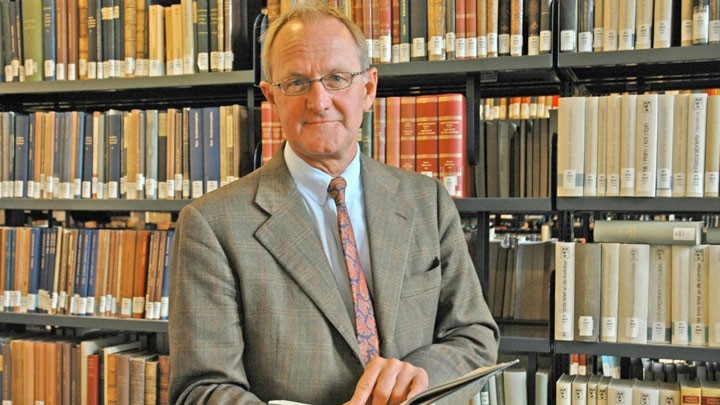 Prof. Dr. Emeritus Friedrich Wilhelm Graf
Prof. Dr. Emeritus Friedrich Wilhelm Graf
Former director of the Institut Technik-Theologie-Naturwissenschaften, Ludwig-Maximilians-Universität München.
Prof. Graf studied theology, philosophy and history at the universities of Wuppertal, Tübingen and München, and received his doctoral degree in 1978. In 1988 Prof. Graf was appointed a professorship in systematic theology and the history of theology at the university of Augsburg. From 1999 to 2014 he held the professorship in systematic theology and ethics at the Ludwig-Maximilians-Universität München. In 1999 he was awarded the Leibniz Award by the German Research Foundation. Prof. Graf’s research has revolved around the history of the Reformation and ecumenical questions.
Prof. Graf has published a number of important works: Die Wiederkehr der Götter. Religion in der modernen Kultur (2004), Der Protestantismus. Geschichte und Gegenwart (2006), Missbrauchte Götter. Zum Menschenbilderstreit in der Moderne (2009), Götter global. Wie die Welt zum Supermarkt der Religionen wird (2014).
No personal webpage.
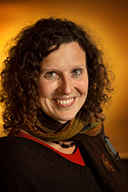
Claudia Welz
Professor with special responsibilities, Section of Systematic Theology, University of Copenhagen
Claudia Welz is Professor of Systematic Theology with special responsibilities in Ethics and Philosophy of Religion and Founding Director of CJMC: Center for the Study of Jewish Thought in Modern Culture at the University of Copenhagen. She is the author of the books Love¹s Transcendence and the Problem of Theodicy (Mohr Siebeck, 2008), Vertrauen und Versuchung (Mohr Siebeck, 2010), Humanity in God¹s Image: An Interdisciplinary Exploration (Oxford University Press, 2016), and has co-authored and edited the anthologies Despite Oneself: Subjectivity and Its Secret in Kierkegaard and Levinas (2008), Trust, Sociality, Selfhood (2010), and Ethics of In-Visibility. Imago Dei, Memory, and Human Dignity in Jewish and Christian Thought (2015).
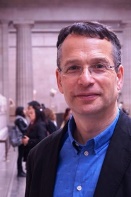
Robert Stern
Professor, Department of Philosophy, University of Sheffield
Robert Stern came to Sheffield in 1989, having been a graduate and Research Fellow at St John's College, Cambridge. He has been a Professor since 2000, and was Head of Department from 2004 to 2008. His main interests in the history of philosophy are in nineteenth century post-Kantian German philosophy, especially Hegel. His interests in contemporary philosophy are in epistemology, metaphysics, ethics and political philosophy. He is currently working on the Danish philosopher and theologian K. E. Løgstrup. His first book was Hegel, Kant and the Structure of the Object (1990), and he has compiled and written introductions for a four-volume collection of articles offering a critical assessment of Hegel's philosophy. His research on autonomy, self-legislation and moral realism has led to a recent book with Cambridge University Press, entitled Understanding Moral Obligation: Kant, Hegel, Kierkegaard (2012). Most recently, Bob has been awarded an AHRC Fellowship for 2015-17, for a project on 'The Ethical Demand: Løgstrup's Ethics and Its Implications', to work on the ethics of the Danish philosopher and theologian K. E. Løgstrup. The main aim will be to write the first monograph in English on Løgstrup's key work The Ethical Demand (1956), as well as the translation of one of his books from German, on Kierkegaard and Heidegger, in a critical edition.
https://www.sheffield.ac.uk/philosophy/staff/profiles/sternr
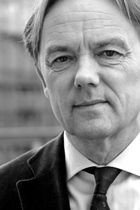 Prof. Dr. Norbert Frei
Prof. Dr. Norbert Frei
Director of the Jena Center 20th Century History, Friedrich-Schiller-Universität Jena.
Frei received his doctoral degree from the University of Munich in 1979. From then on until 1997 he was a member of the research staff of the Institut für Zeitgeschichte in Munich. From 1997-2004 he held a Chair for Modern History at the Ruhr-Universität Bochum, since 2005 he teaches in the same function at the Friedrich-Schiller-Universität Jena. He is the director of the Jena Center 20th Century History.
Among his books is Der Führerstaat. Nationalsozialistische Herrschaft 1933 bis 1945 (dtv 1987, new paperback edition C.H.Beck 2013) which has been translated into several languages (English edition: National Socialist Rule in Germany. The Führer State 1933-1945. Blackwell 1993). In 2010, he published, together with Eckart Conze, Peter Hayes and Moshe Zimmermann, Das Amt und die Vergangenheit. Deutsche Diplomaten im Dritten Reich und in der Bundesrepublik (Blessing 52010, paperback edition Pantheon 2012).
Further information: http://www.nng.uni-jena.de/norbert_frei.html
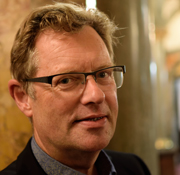 Prof. Dr. Niels Henrik Gregersen
Prof. Dr. Niels Henrik Gregersen
Prof. Dr., Section of Systematic Theology, University of Copenhagen
Niels Henrik Gregersen holds his PhD from the University of Copenhagen on Theology and Culture: Protestantism between Isolation and Assimilation (Aarhus University Press 1987). Since then he has worked both in Systematic Theology and in the field of Science-and-Religion. 2000-2004 he was Research Professor in Theology & Science at Aarhus University, since 2004 Professor of Dogmatics and Ecumenical Theology at the University of Copenhagen.
He has received several international research awards, among them a 100.000 $ research award from John Templeton Foundation for his work on the constructive interface between science & religion. With physicist Paul Davies he published Information and the Nature of Reality (Cambridge’s Canto Classics 2014). More recently he has devoted his work to theological issues such as developing concepts of Deep Incarnation (Fortress Press 2015), Generous Orthodoxy (Eksistensen 2015, 5th edition 2017), and Post-Secular Reformation Theology. His latest publications are Reformation Theology for a Post-secular Age, edited with Bengt K. Uggla and Trygve Wyller (Vandenhoeck & Ruprecht 2017) and Reformationen i dansk kirke og kultur 1517-2017, vols 1-3 (Southern Danish University Press), edited with Carsten Bach-Nielsen at Aarhus University.